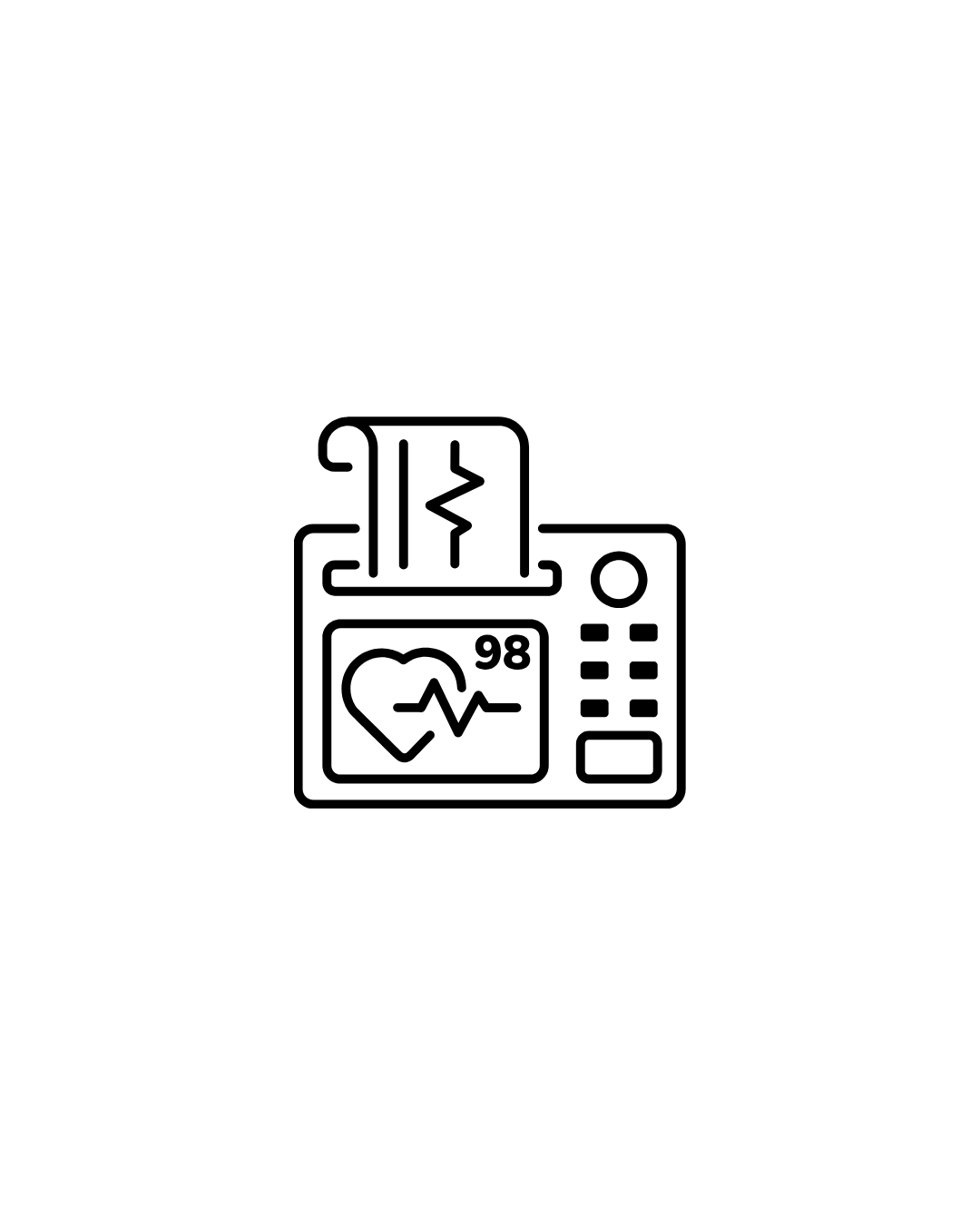Description
Overview of Post Graduate Diploma in ECG Technician
The Post Graduate Diploma in ECG Technician is a specialized program aimed at training individuals to become proficient in performing electrocardiogram (ECG) tests and assisting in the diagnosis of cardiac conditions. The program covers various aspects of cardiovascular health, ECG interpretation, and patient care, preparing graduates for a vital role in healthcare settings.
Core Areas of Study in PG Diploma in ECG Technician
Introduction to Cardiology
Basics of human cardiovascular anatomy and physiology, understanding heart function, and common cardiac diseases.
Principles of Electrocardiography
Fundamentals of ECG technology, including the physiological basis of electrical activity in the heart and how it relates to ECG readings.
ECG Equipment and Techniques
Training on the operation of ECG machines, proper lead placement, and troubleshooting common technical issues.
ECG Recording and Interpretation
Skills for accurately recording ECGs, conducting stress tests, and interpreting different ECG waveforms and arrhythmias.
Patient Care and Communication
Techniques for effectively communicating with patients, preparing them for ECG tests, and providing reassurance throughout the process.
Monitoring Cardiac Patients
Understanding the role of ECG technicians in monitoring patients before, during, and after cardiac procedures, including understanding vital signs.
Electrophysiology Basics
Introduction to electrophysiology, including the mechanisms of arrhythmias and how they are diagnosed through ECG.
Ethics and Professional Standards in Cardiac Care
Overview of ethical considerations in patient care, confidentiality, and the professional conduct expected from healthcare workers.
Practical Skills Development
Hands-on training through clinical practicums, providing real-world experience in performing and interpreting ECG tests.
Emergency Response Techniques
Training in basic life support (BLS) and how to respond to cardiac emergencies, including recognizing critical arrhythmias.
Curriculum Structure
A PG Diploma in ECG Technician program typically includes:
Core Courses: Foundational courses focusing on cardiology, electrocardiography, and patient care.
Elective Courses: Options for deeper studies in areas such as advanced electrophysiology or cardiac imaging techniques.
Clinical Practicum or Internship: Practical experience in hospitals or clinics, where students learn to perform ECGs and interact with patients.
Capstone Project or Research Thesis: A project that may involve research on cardiac health or improvements in ECG practices.
Admission Requirements
Admission to a PG Diploma in ECG Technician program generally requires:
A bachelor’s degree in a healthcare-related field such as nursing, allied health, or health sciences.
Relevant experience or certification in a medical setting might be preferred.
A minimum GPA or academic qualifications based on the institution?s requirements.
Letters of recommendation from academic or professional contacts.
A personal statement outlining the candidate?s interest in cardiology and aspirations as an ECG technician.
Skills Developed in a PG Diploma in ECG Technician Program
Graduates of the PG Diploma in ECG Technician program will acquire various essential skills, including:
Technical Proficiency: Expertise in using ECG equipment and performing accurate tests.
Interpretative Skills: Ability to identify and analyze different heart rhythms, arrhythmias, and irregularities from ECG strips.
Patient Management: Competence in effectively communicating with and educating patients about procedures and any necessary preparations.
Emergency Response: Skills to respond to cardiac emergencies and work collaboratively with healthcare teams in critical situations.
Attention to Detail: A meticulous approach to ensuring accurate recordings and adherence to safety and quality standards.
Career Opportunities
Graduates with a Post Graduate Diploma in ECG Technician can pursue various career paths, including:
ECG Technician
Performing and interpreting ECG tests in hospitals, clinics, and cardiac care units.
Cardiac Monitor Technician
Monitoring patients’ heart rhythms continuously, often in critical care settings.
Electrophysiology Technician
Assisting in specialized cardiac procedures related to the electrical activity of the heart.
Clinical Research Coordinator
Involved in clinical trials or research studies related to cardiology, focusing on new diagnostic techniques or treatments.
Healthcare Educator in Cardiac Health
Teaching patients and the public about heart health, preventive cardiology, and the importance of ECG testing.
Conclusion
The Post Graduate Diploma in ECG Technician prepares graduates to play a vital role in cardiac care, offering the technical expertise and patient-centered approach necessary for effective ECG practice. With an emphasis on accurate diagnostics and patient management, graduates are well-equipped to contribute to the healthcare system and help manage cardiovascular health. If you have more questions about the PG Diploma in ECG Technician program or related topics, feel free to ask!









